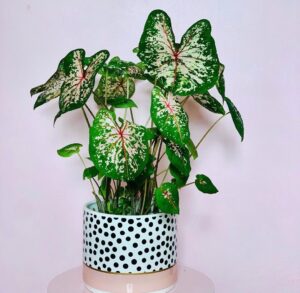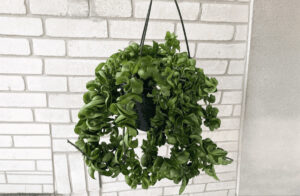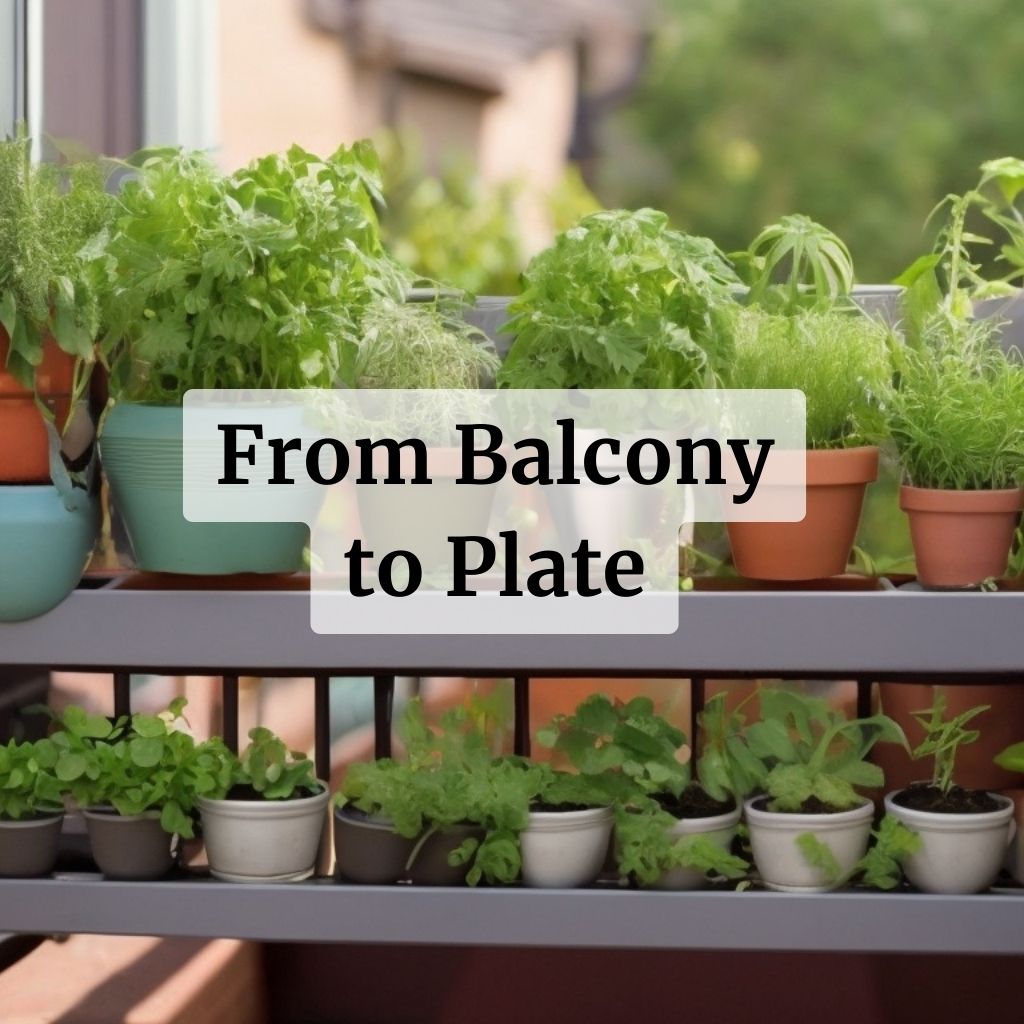
Balcony herb gardening is a rewarding way to bring the joy of growing herbs into small living spaces. Despite limited room, you can cultivate a thriving herb garden right on your balcony. With the right herbs, sunlight, and care, you can enjoy the satisfaction of harvesting your own homegrown herbs, even in the midst of the city hustle.
In this article
How to Grow Herbs on Your Balcony
Selecting the right herbs is the foundational step to successful balcony gardening. Begin by considering your culinary preferences. Do you often whip up Italian dishes? Then basil and oregano are must-haves. Are you a fan of Thai cuisine? Lemongrass and Thai basil should top your list. Think about the herbs you regularly use in your kitchen and prioritize those for your balcony garden.
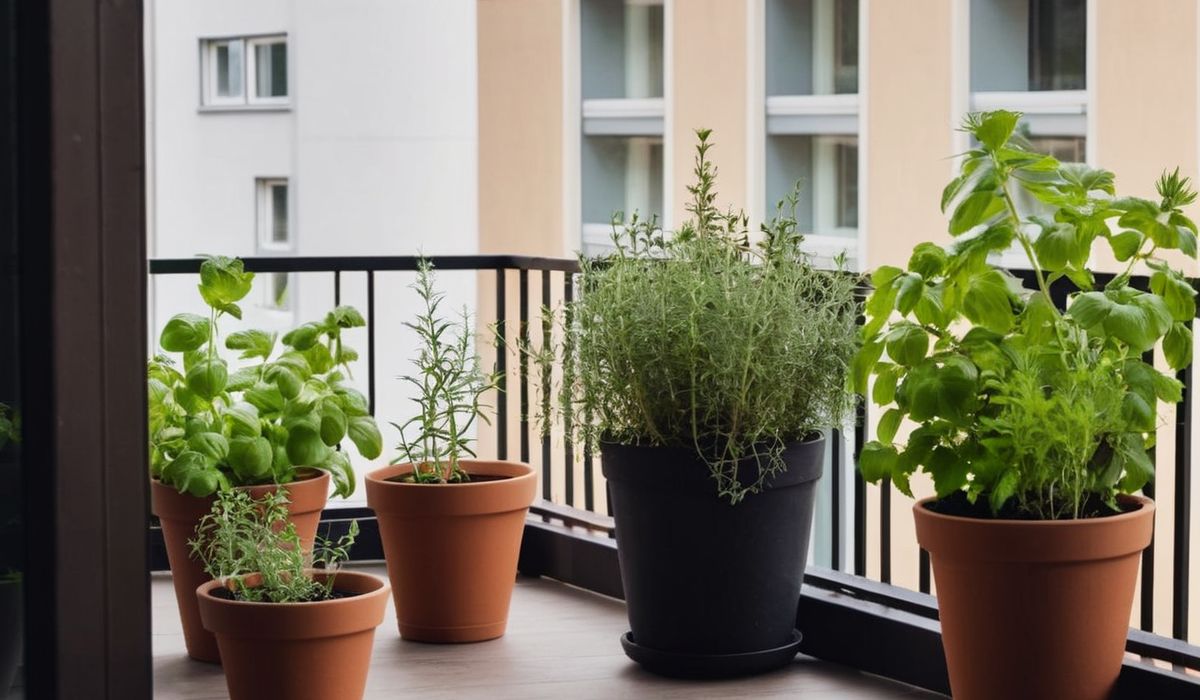
Good Balcony Herb Choices
Here’s a quick list of herbs suitable for balcony gardening:
- Basil: A versatile herb that thrives in containers.
- Mint: Perfect for refreshing drinks and desserts.
- Parsley: A kitchen staple that’s easy to grow.
- Rosemary: Adds an aromatic touch to roasts and grills.
- Thyme: Great for seasoning various dishes.
Remember, some herbs, like mint, can be invasive, so consider planting them in separate containers to prevent overgrowth.
Balcony Garden Essentials
Now that you’ve chosen your herbs, it’s time to set up your balcony garden. Here’s what you’ll need:
- Containers: Use pots or planters with drainage holes to prevent waterlogging.
- Potting Mix: Opt for a well-draining mix suitable for herbs.
- Sunlight: Most herbs love at least 6 hours of sunlight daily.
- Watering Can: Maintain consistent moisture levels, but avoid overwatering.
- Fertilizer: Apply a balanced, slow-release fertilizer to nourish your herbs.
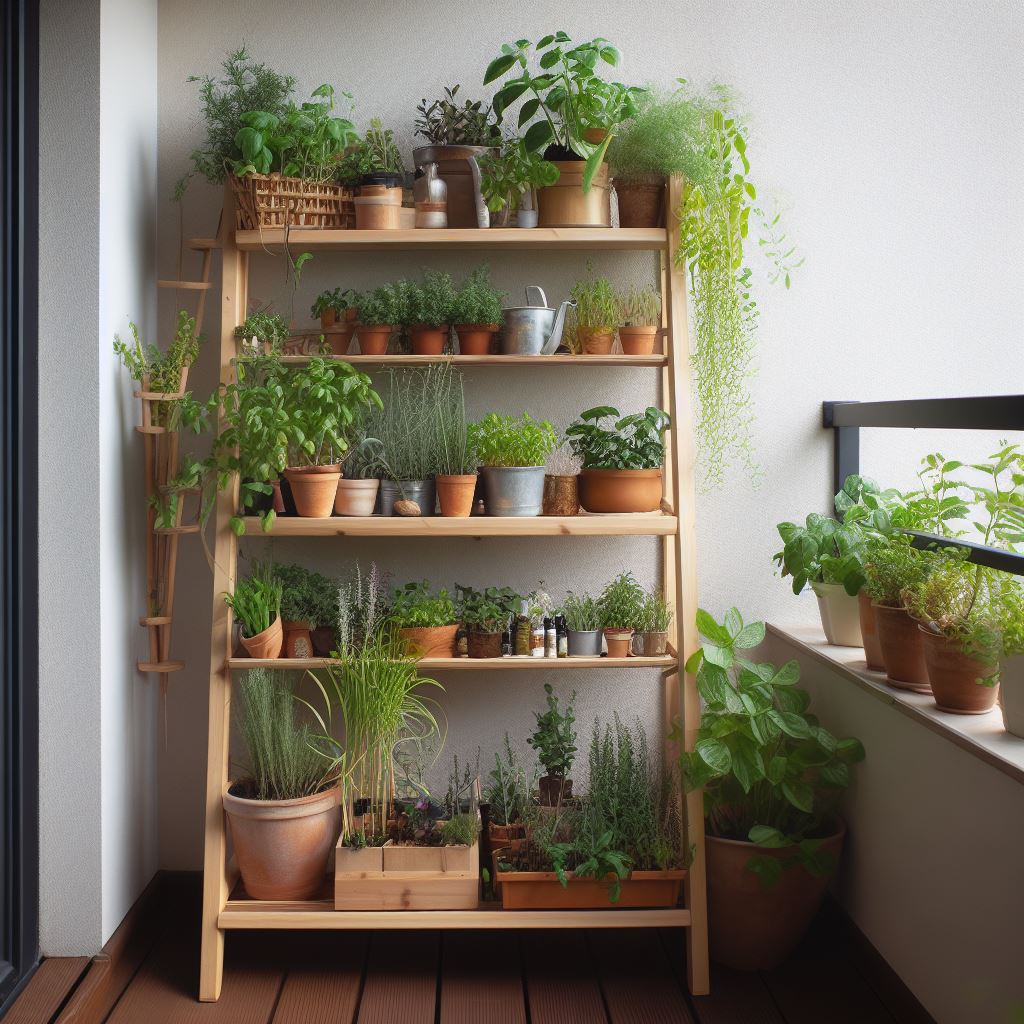
Container Ideas
- Traditional Terracotta Pots: Classic and versatile, terracotta pots are excellent for herb gardening. They provide good drainage and a timeless look.
- Hanging Baskets: Hanging baskets are perfect for trailing herbs like oregano, thyme, and ivy. They save space and add visual interest to your balcony.
- Vertical Wall Planters: Maximize space by installing vertical wall planters on your balcony. These pockets can house a variety of herbs while creating an attractive living wall.
- Wooden Crates: Reclaimed wooden crates can be repurposed into rustic herb planters. They add a touch of charm and character to your balcony garden.
- Tiered Plant Stands: Multi-tiered plant stands are both practical and aesthetically pleasing. They allow you to display a variety of herbs at different heights.
- Window Boxes: If your balcony has a railing or ledge, window boxes are a great option. They can hold a variety of herbs and provide easy access for harvesting.
- Recycled Containers: Get creative by upcycling items like old tin cans, wooden pallets, or even shoe organizers into unique herb containers.
- Mason Jars: Mason jars are charming and functional for herb gardening. Mount them on a wooden board or hang them individually for a trendy look.
- Tire Planters: Painted and stacked old tires can become a playful herb garden. They’re also a sustainable choice for repurposing materials.
- Wine Crates: Wine crates with dividers can be transformed into compact herb gardens, making them a stylish choice for small balconies.
- Teacup Planters: For a touch of whimsy, use teacups and saucers as mini herb pots. They’re perfect for growing smaller herbs like chives or mint.
- Strawberry Pots: These pots have multiple pockets, making them ideal for growing several herbs in one container. They have a unique appearance that adds character to your balcony.
Remember to choose containers that provide good drainage and suit the overall style of your balcony. Mixing and matching different container types can also create an appealing visual contrast in your herb garden.
Arranging Your Balcony Herb Garden

Maximize your limited space with these tips:
- Vertical Planting: Install wall-mounted shelves or use hanging baskets to make the most of vertical space.
- Tiered Plant Stands: Place your containers on tiered stands to create a visually appealing arrangement.
- Balcony Railing Planters: Utilize railing planters to save floor space while showcasing your herbs.
The Care and Feeding of Balcony Herbs
Growing herbs on a balcony requires a bit of extra attention compared to a traditional garden. Here’s what you need to know:
- Watering: Check your herbs’ moisture levels regularly. Water when the top inch of soil feels dry. Avoid waterlogged soil, as it can lead to root rot.
- Pruning: Regularly trim your herbs to encourage bushier growth and prevent legginess.
- Pest Control: Keep an eye out for pests like aphids and caterpillars. Use natural remedies like neem oil or insecticidal soap.
- Fertilizing: Apply a diluted, balanced liquid fertilizer every 4-6 weeks during the growing season.
- Harvesting: Harvest your herbs regularly to encourage new growth. Snip leaves and stems, but leave at least a third of the plant intact.
Companion Planting
Consider companion planting to naturally deter pests and boost growth. For instance, marigolds planted alongside your herbs can help repel aphids and other unwanted visitors.
Balcony gardening is not just about growing herbs; it’s about connecting with nature, even in the heart of the city. It’s about nurturing life and witnessing the magic of plants flourishing under your care. So, if you’re hesitant about embarking on this green journey, I encourage you to take that first step. You’ll be amazed at the joy it brings.
Growing herbs on your balcony is not also incredibly rewarding. With the right herbs, a well-thought-out setup, and some TLC, you can create a mini oasis of fresh flavors and fragrances right outside your door. So, roll up your sleeves, grab your gardening gloves, and let’s get started on this delightful balcony herb gardening journey together.
Frequently Asked Questions
How much sunlight do balcony herbs need?
Most herbs thrive with at least 6 hours of direct sunlight daily. However, some, like mint and parsley, can tolerate partial shade.
What’s the ideal watering schedule for balcony herbs?
Water your herbs when the top inch of soil feels dry, but be cautious not to overwater, as it can harm the plants.
How can I prevent pests in my balcony herb garden?
Keep pests at bay by inspecting your herbs regularly and using natural remedies like neem oil or insecticidal soap when needed.



